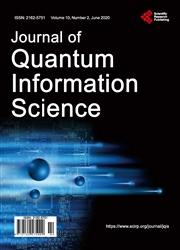A Quantum Mechanical Proof of Insecurity of the Theoretical QKD Protocols
引用次数: 1
Abstract
Cryptography is crucial to communication security. In 1984, a well-known QKD (quantum key distribution) protocol, BB84, was published by Bennett and Brassard. The BB84 Protocol was followed by the QKD protocols published by Ekert (1991) (E91) and Bennett (1992) (B92). Some authors proved security of the theoretical QKD protocols in different theoretical frameworks by defining security of QKD protocols differently. My argument is that the previous proofs of security are neither unique nor exhaustive for each theoretical QKD protocol, which means that proof of security of the theoretical QKD protocols has not been completed or achieved. The non-uniqueness and the non-exhaustiveness of the proofs will lead to more proofs. However, a coming “proof” of security of the theoretical QKD protocols is possible to be a disproof. The research by quantum mechanics in this paper disproves security of the theoretical QKD protocols, by establishing the theoretical framework of quantum mechanical proof, defining security of QKD protocols, establishing the quantum state of the final key of the theoretical protocols from their information leakages, and applying Grover’s fast quantum mechanical algorithm for database search to the quantum state of the final key to result in the Insecurity Theorem. This result is opposite to those of the previous proofs where the theoretical QKD protocols were secure. It is impossible for Alice and Bob to protect their communications from information leakage by stopping or canceling the protocols. The theoretical QKD keys are conventional and basically insecure. Disproof of security of the theoretical QKD protocols is logical.理论QKD协议不安全性的量子力学证明
密码学对通信安全至关重要。1984年,Bennett和Brassard发布了一个著名的QKD(量子密钥分发)协议BB84。继BB84协议之后,Ekert (1991) (E91)和Bennett (1992) (B92)发布了QKD协议。一些作者通过对QKD协议的安全性进行不同的定义,在不同的理论框架下证明了理论QKD协议的安全性。我的论点是,前面的安全性证明既不是唯一的,也不是每个理论QKD协议的详尽证明,这意味着理论QKD协议的安全性证明还没有完成或实现。证明的非唯一性和非穷尽性将导致更多的证明。然而,即将到来的关于理论上的QKD协议安全性的“证明”可能是一个反证。本文的量子力学研究通过建立量子力学证明的理论框架,定义QKD协议的安全性,从理论协议的信息泄漏中建立最终密钥的量子态,并应用Grover的快速量子力学算法对最终密钥的量子态进行数据库搜索,得出不安全定理,从而证明了理论QKD协议的安全性。这一结果与之前理论QKD协议是安全的证明相反。Alice和Bob不可能通过停止或取消协议来保护他们的通信免受信息泄露。理论上的QKD密钥是传统的,基本上不安全。理论上的QKD协议的安全性的反驳是合乎逻辑的。
本文章由计算机程序翻译,如有差异,请以英文原文为准。
求助全文
约1分钟内获得全文
求助全文

 求助内容:
求助内容: 应助结果提醒方式:
应助结果提醒方式:


